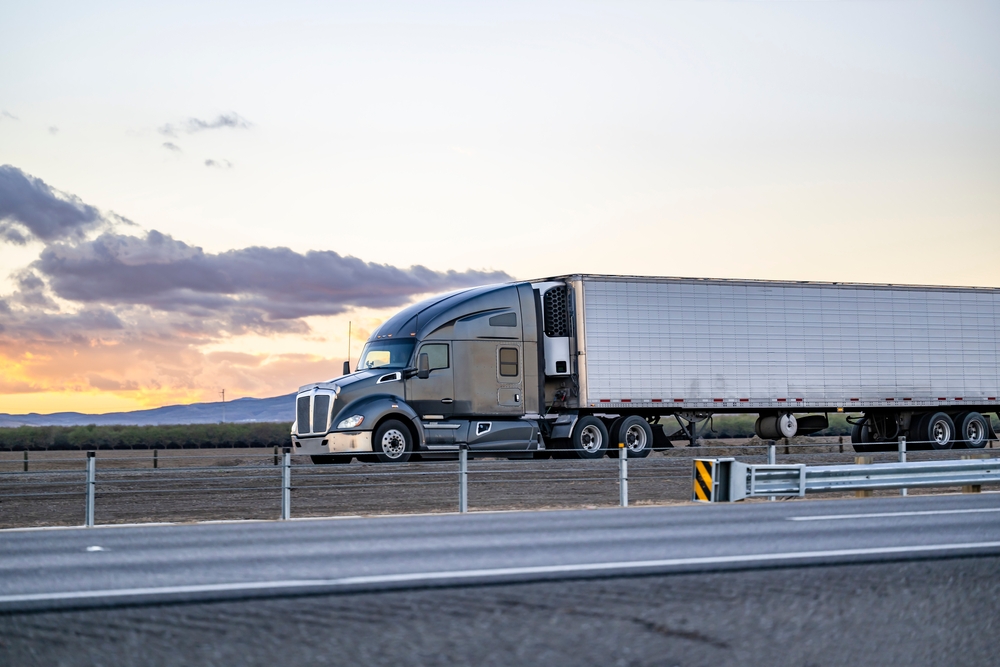
The American Transportation Research Institute (ATRI) has released its 2024 Top Industry Issues report, and the findings spotlight the biggest challenges facing the trucking industry. Topping the list for the second year in a row are concerns over the state of the economy and the ongoing lack of truck parking. However, this year’s report also highlights a sharp rise in concerns over nuclear verdicts, insurance costs, and electric vehicles (EVs), as these issues continue to disrupt the industry.
The survey, conducted annually, gauges the opinions of over 3,700 trucking professionals, including motor carrier executives, truck drivers, suppliers, and law enforcement. This year’s results, presented at the American Trucking Associations’ annual management conference, outline the key issues that industry stakeholders believe require immediate attention.
Top 10 Industry Concerns for 2024:
- State of the Economy
- Truck Parking
- Nuclear Verdicts/Lawsuit Reform
- Insurance Cost and Availability
- Driver Compensation
- Electric Vehicles
- Compliance, Safety, Accountability (CSA)
- Detention at Customer Facilities
- Driver Shortage
- Driver Distraction
A Tough Year for Trucking
The top concern for 2024 remains the economy, as the trucking industry continues to grapple with the effects of a prolonged freight recession that began in 2022. Freight rates have dropped across all sectors, tonnage remains below 2023 levels, and operating costs have risen. “Without question, this has been another tough year for the trucking industry,” said Gregg Troian, president of PGT Trucking, emphasizing the increasing costs amid weakened freight demand.
In second place, the chronic lack of available truck parking remains a top issue for drivers and motor carriers alike. As parking becomes more scarce, truckers face increasing challenges finding safe and legal spots to rest, which also impacts overall road safety.
Nuclear Verdicts and Insurance Costs Skyrocket
One of the most significant changes in the 2024 report is the rise of nuclear verdicts—massive legal settlements often awarded in cases involving trucking accidents. These verdicts have propelled lawsuit abuse reform to the #3 spot on the list. For motor carriers, it ranks as the second most pressing concern after the economy.
Closely tied to the rise of nuclear verdicts is the jump in insurance costs and availability, which climbed to fourth place this year. The skyrocketing cost of insurance, driven by litigation risks and higher claims payouts, is straining fleets across the country. ATRI’s report indicates that these costs are cutting into already thin profit margins and pushing some smaller carriers out of business.
Electric Vehicles Gain Ground
Another key development is the growing concern over the transition to battery-electric vehicles (BEVs). Ranked sixth this year, EV adoption has surged up the list as fleets face aggressive mandates and timelines for electrification. ATRI has been tracking the challenges surrounding EV integration, from vehicle costs to the extensive charging infrastructure needed to support these fleets. One ATRI study estimated that shifting the long-haul trucking sector to BEVs could cost over $1 trillion in vehicle purchases and infrastructure over the next 15 years.
The report also highlights that 47% of respondents believe that quantifying the total supply chain costs of this transition is crucial. Additionally, 27% of respondents emphasized the need for more research into the safety and infrastructure impacts of battery-electric trucks, especially in light of incidents like a Tesla truck crash in California that required more than 1 million gallons of water to extinguish, raising concerns about first responder safety.
Looking Ahead
The 2024 Top Industry Issues report underscores the increasing complexity of challenges facing the trucking industry, from regulatory changes and rising operational costs to the push for electrification. Motor carriers, drivers, and other stakeholders will need to collaborate and advocate for reforms, particularly in areas like lawsuit abuse and infrastructure development, to help mitigate these growing concerns and position the industry for a more sustainable future.
Source:











Leave a Comment